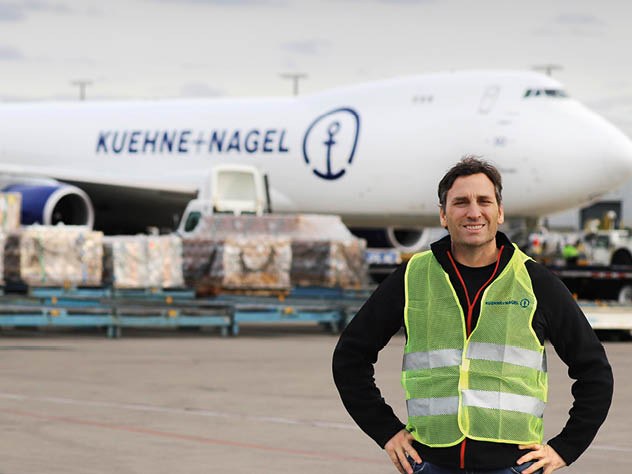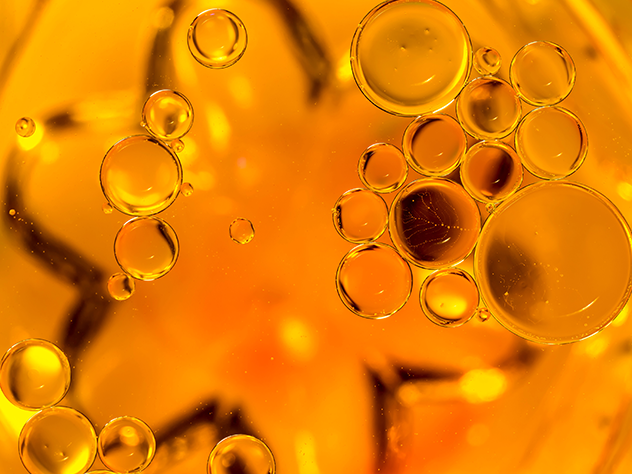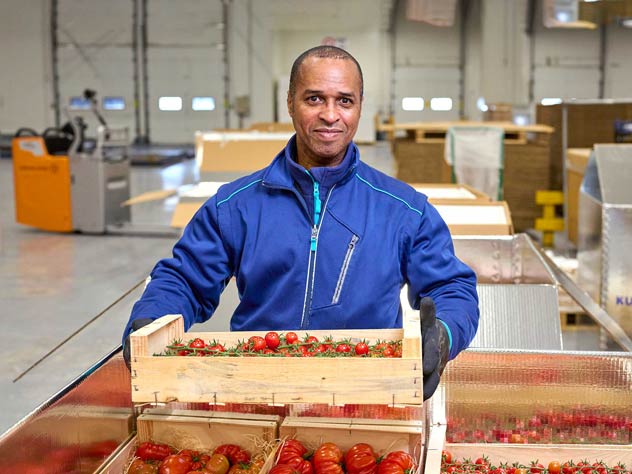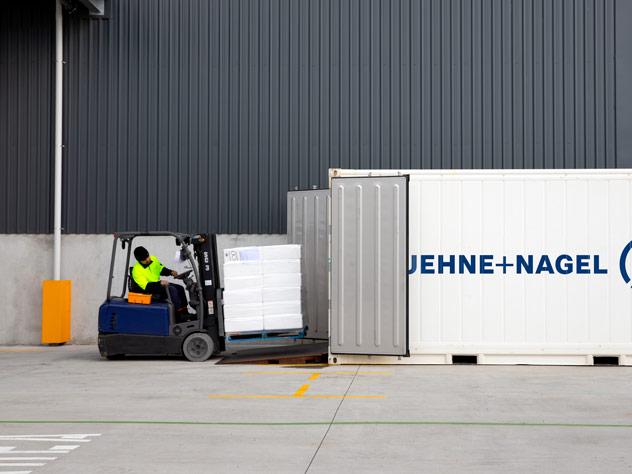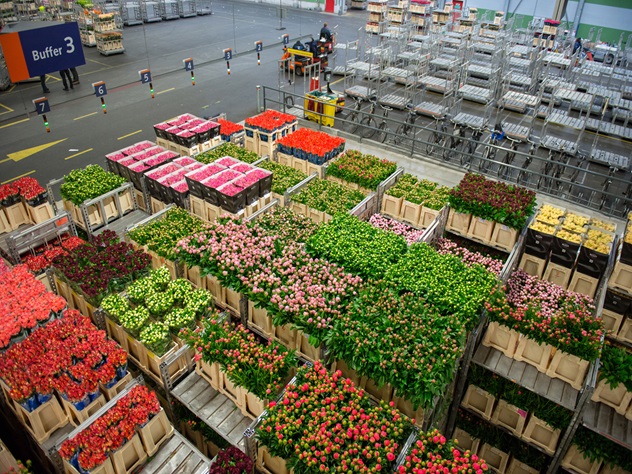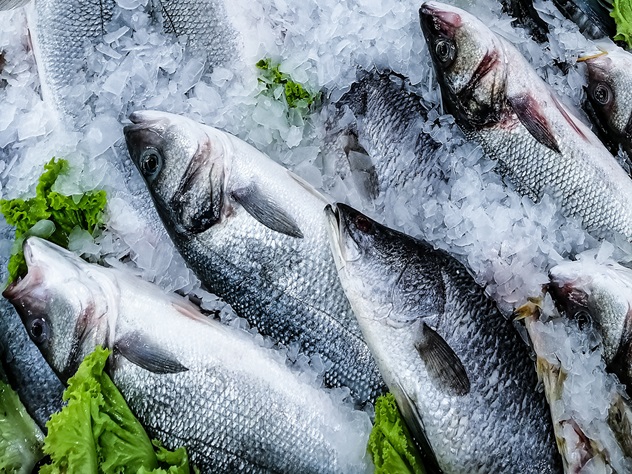Back Air Logistics - Sustainable aviation fuel (SAF) solutions
Services
Sustainable aviation fuel (SAF) solutions — leading the way to a low-carbon economy
Kuehne+Nagel has developed a state-of-the-art sustainable aviation fuel (SAF) certificate program for customers offering you a more sustainable option for air freight shipments following a “Book & Claim” approach.
Our teams are ready to provide sustainable air freight solutions on a global scale, assisting you in reaching your climate targets. To reduce your carbon footprint, we offer you the option of SAF. Regardless of the origin, destination, airline, or service you choose, these solutions, in combination or individually, can be integrated to fit your business goals.
What is sustainable aviation fuel?
SAF is a cleaner substitute for conventional jet fuel having similar characteristics to traditional jet fuel kerosene. SAF is a so-called drop-in fuel as it can be implemented in current engines and does not need modifications on aircraft.
Depending on the feedstock, there are two main types of SAF—namely bio SAF and synthetic SAF. Bio SAF is made from biomass using wastes, residues, by-products, or feedstock with a low global warming potential. It can be produced via different technological pathways. Conversely, the primary energy source and feedstocks for the production of synthetic SAF are renewable energy, water and carbon dioxide (CO2).
Today, the only commercially available technology for bio-SAF production is hydro-processed esters and fatty acids (HEFA), which refines fats, oils, and greases (FOG) into SAF and reduces well-to-wake (WTW) greenhouse gas emissions to over 90% when compared with fossil jet-fuel.
New pathways to produce bio-SAF are expected to come into production at scale soon, expanding the potential quantity of biomass that can be used as feedstock, such as agricultural residues, forestry residues, or algae.
However, biomass is limited in quantities and will most likely not be able to cover all the sector’s fuel needs. Therefore, synthetic SAF is considered the long‐term solution for the industry to close this gap as it can theoretically be produced with almost no limits, avoiding biomass supply limitations.
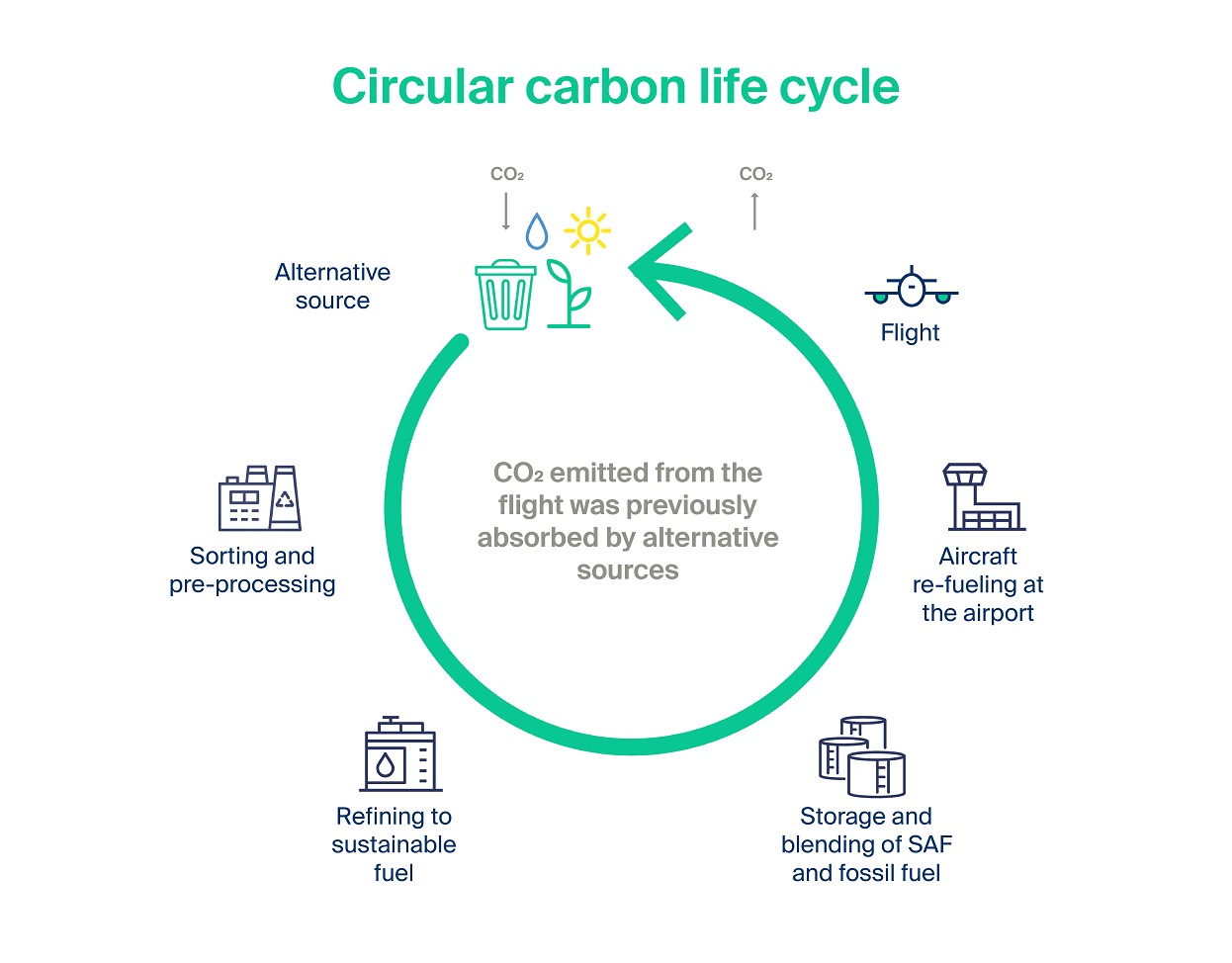
What is the impact of shipping with SAF?
The rapid increase in SAF usage is one of the key solutions to enable the aviation sector to attain its ambitious net-zero targets. Together with like-minded customers, we can play an important role in creating demand and developing the market, accelerating the scale-up. Sustainability is a collaborative approach, and ambitious targets can only be achieved if we include all partners in the value chain.
Using SAF on a shipment is the single most effective measure to reduce the greenhouse gas (GHG) emissions of air freight today. However, it doesn’t come with 0 emissions. It still generates CO2 emissions during production, processing, and transport. In comparison to fossil jet fuel, the bio-SAF Kuehne+Nagel offers today can reduce WTW emissions by 73%-94% depending on the feedstock and specific production process of each batch.
Synthetic SAF even has the potential to reduce WTW emissions by 100%, however, this will only be feasible at a larger scale around 2030.
Although SAF does not reduce the shipment’s emissions completely, we offer two ways to balance 100% of the emissions when using bio SAF. Firstly, the remaining CO2 emissions can be balanced by overcompensating the amount of jet fuel kerosene replaced by SAF up to a ratio of 1:1.33. Secondly, we can offset the residual emissions via certified carbon reduction projects that currently hold the highest quality certifications—Verified Carbon Standard (VCS) and/or Gold Standard (GS).
Ready to act? Here is how it works
As we follow the so-called “Book & Claim” approach, we can offer SAF to our customers for all their shipments, regardless of the airline used. This also covers all origin and destination pairs.
Here’s how the process works. We hold onto the emissions reductions certificates, including the litres of SAF used, as Kuehne+Nagel. We then use these certificates globally for any shipment whilst reducing the amount of SAF litres in our central registry. We offer two options to our customers:
- Retroactive calculation—by calculating the amount of jet fuel kerosene that your shipments consumed after they have taken place, we can then use SAF to substitute that amount.
- Opt-in—use SAF for an individual shipment that we offer on each quote we give to shippers. This is available on all Kuehne+Nagel air freight quoting platforms and channels, allowing you to choose this more sustainable transport via your preferred online or offline quoting method.
After the shipment has taken place, we issue a SAF emission reduction certificate with a unique identifier that traces the exact SAF volumes and the corresponding CO2 emission reductions. It also includes all the necessary information for transparency. The program as well as the certificates are audited by a 3rd party.
It’s as easy as that!
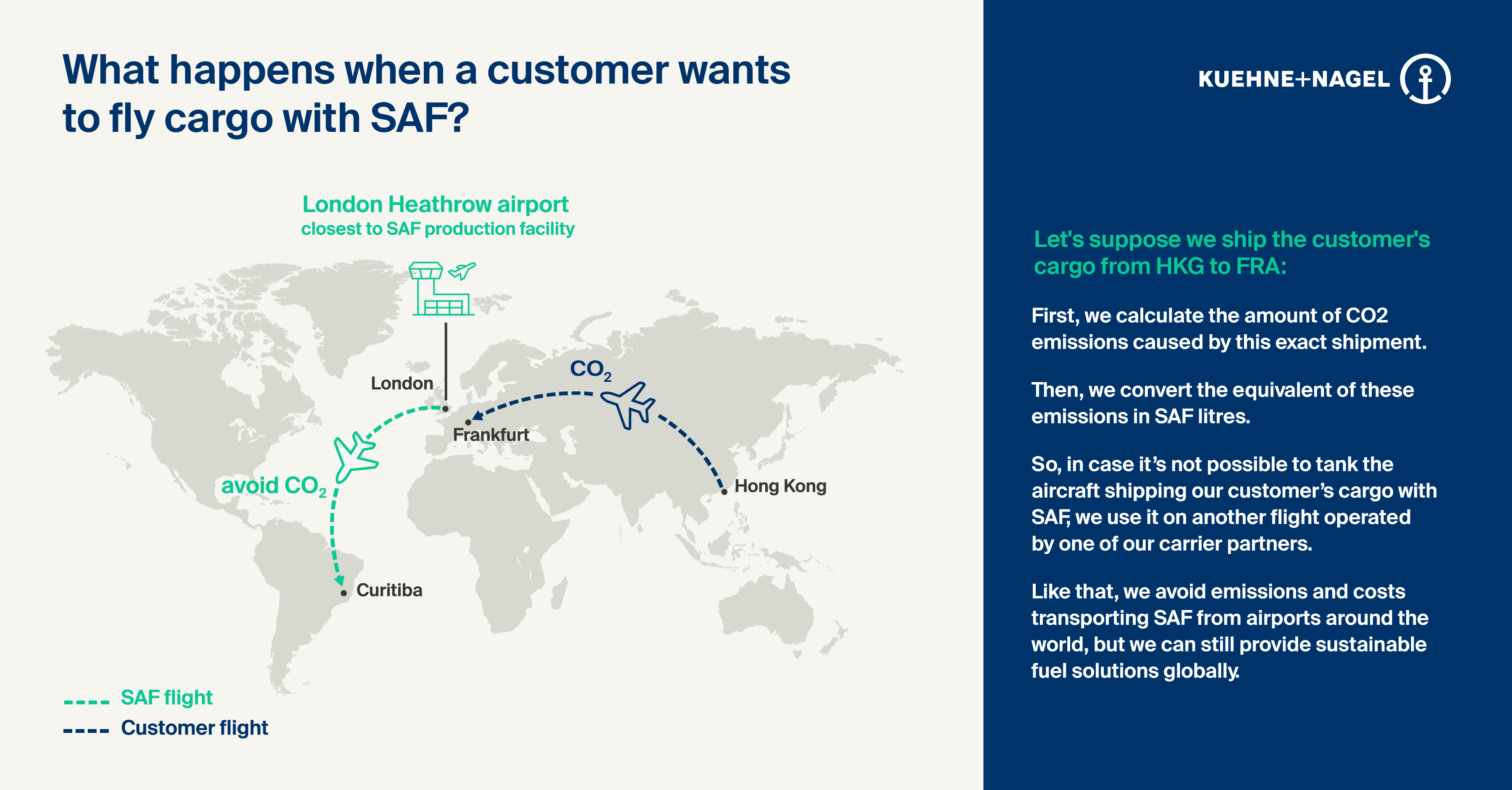
Tangible benefits in addition to taking care of our environment:
- Lead the way to a zero-carbon economy, boost innovation and fulfil your ambitious emissions reduction targets.
- Instantly reduce up to 94% of your shipments’ carbon footprint.
- Go global: our SAF solutions are available on all routes for all services and all customers worldwide—regardless of airlines used, origin or destination.
- Enjoy peace of mind and certainty knowing our SAF solutions are implemented based on state-of-the-art standards, high transparency and 3rd party audits.
- Power your products with SAF through one point of contact, directly via the logistics provider.
- Strengthen your brand and market your products as more sustainable.
- Meet reporting requirements—show the impact and share your story with the SAF certificate, proving that your supply chain’s environmental impact has been reduced.
Latest news:
- Kuehne+Nagel teams up with Lenovo to support technology customers in reducing their carbon footprint… Read more
- Kuehne+Nagel and Novo Nordisk expand global partnership into low carbon fuels… Read more
- Kuehne+Nagel becomes the first air logistics provider to offer customers sustainable fuel option for all shipments... Read more
- Kuehne+Nagel and Lufthansa Cargo agree on exclusive partnership to promote CO2-neutral synthetic fuel… Read more
- Kuehne+Nagel and IAG Cargo complete the first net zero carbon charter chain... Read more





